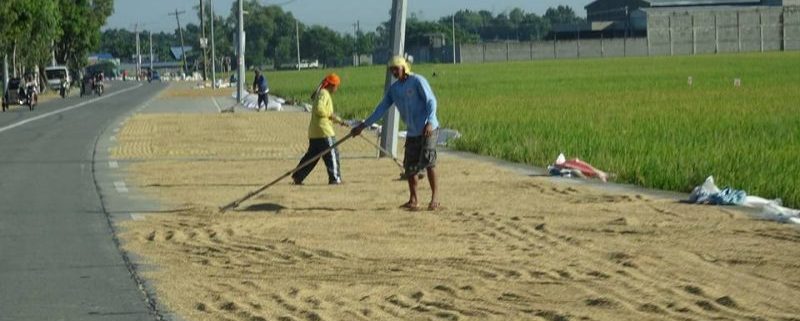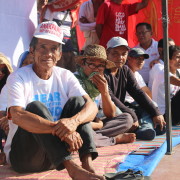Farmers warn gov’t of possible rice price manipulation schemes
Farmers asked Congress to investigate looming rice price manipulation schemes by private traders, saying claims of P34 to P36 per kilo of palay are ridiculously high.
The Kilusang Magbubukid ng Pilipinas (KMP) said it is alarmed by a rice miller’s claims that palay is being bought from P34 to P36 in Bulacan that may soon push rice prices to P60 per kilo.
Bulacan miller Tony Santos said that farm gate prices of palay have reached such levels, a claimed backed by Federation of Free Farmers general manager Raul Montemayor in a Philippine Star interview.
The KMP however said the figures are inflated.
“[I]t is hard to believe that P34 per kilo is the prevailing price of palay when based on KMP’s monitoring…the palay price in Malolos, Bulacan is at P20 per kilo, P21 to P22 per kilo in Isabela, P20 per kilo in Mindoro Occidental,” KMP chairperson Danilo Ramos said.
Ramos added that it is not yet harvest season and they wonder where the claims are based.
“It is in the interest of consumers and the public to know if there is a syndicated price manipulation and speculation going on to justify the increase in retail prices of rice,” Ramos said.
KMP said that while it advocates for the buying of palay directly from rice farmers at just prices, it does not agree with millers’ claims that an increase in palay prices is the ultimate reason for high rice prices.
The group said an existing cartel within the domestic rice industry—dominated by importers, traders and millers as well as corrupt officials within the Department of Agriculture—are to blame.
Failed rice importation policy
KMP pointed to the Rice Liberalization Law (RA 11203) and the government’s importation and agricultural trade liberalization policies as the culprits behind increasing rice prices.
“The government’s rice liberalization law crippled the National Food Authority’s (NFA) rice buffer stocking mandate and allowed the private sector to take over the entire rice industry, thereby putting rice farmers and consumers at the mercy of the rice cartel,” Ramos said.
KMP reiterated that the Ferdinand Marcos Jr. government must do away with its importation policy especially with the very volatile rice supply and price situation after India’s export ban and strained rice supply in Asia due to the effects of El Nino.
The view is mirrored by Amihan National Federation of Peasant Women and rice watch group Bantay Bigas that also lambasted Marcos for insisting on rice importations as his last resort to the problem.
“Because the government relies on rice importation instead of letting the NFA increase its local procurement, stocks from local farmers have all been snapped up by the private traders,” Amihan secretary general and Bantay Bigay spokesperson Cathy Estavillo said.
Estavillo said rice importation is not the immediate solution. Rather, the government should look for the stocks hoarded by private traders. # (Raymund B. Villanueva)






